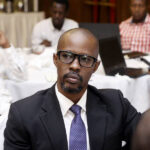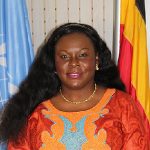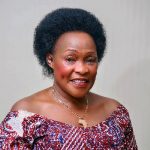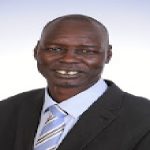AK47-wielding people are to blame for the continent’s
instability, according to Betty Bigombe. “They should be
protecting people but, instead, they are protecting the
government from disgruntled people.” She recommended
adherence to the principles of democracy that places the
needs of citizens above those of politicians.
Angelo Izama said that commercialisation of politics, the
corrosion of public institutions, undermining the pillars of
government and the loss of confidence in the Judiciary
are to blame for the absence of peace and stability on the
continent.
But are local approaches to attaining peace
better than international efforts? What else
can countries explore, other than military
interventions? The panellists pointed at dialogue,
opening borders and a responsible media.
Rosa Malango said that those closest to a given problem
have a role to play. She said that there is need to rethink
governance and democracy, and to explore intergenerational
dialogue on issues. “Youth are stakeholders that must be
heard. Recognise and give dignity to solutions by youth.”
Izama said that when African leaders fronted the idea
of African solutions to African problems, the Europeans,
Americans and the rest of the world thought that they had
a hidden agenda. In response, Malango said that African
solutions are not that different from other solutions.
Melha Rout Biel said that dialogue and building institutions
that work are key to peaceful and stable economies,
rather than military interventions, which are expensive,
destructive and divisive. Democracy, he said, is not just
about elections. “We must have term limits. No one should
rule for more than two terms. Leaders should also allow
people to criticise [them] and to demonstrate. They should
empower other actors such as civil society organisations.”
Izama recommended that we should pretend that borders
do not exist and allow progressive sections of society to
live together, for instance the Bakonzo in Uganda and the
Bakonzo in DR Congo. Izama called for a reduction in the
size of government. “The political class is too big. We need
to reduce the number of politicians.”
On South Sudan, Izama said we let the new country down
by keeping quiet about what the country’s elite were doing.
He pointed out that the media can be bought into silence
about an issue in society. “We let them [South Sudanese]
down.”
Biel concurred with Izama on the media question, and
urged the fourth estate to be informed. “Don’t write for the
sake of writing. You write about South Sudan from Kenya
when you have no idea what you are talking about.”
Bigombe tasked leaders to be honest with one another.
- Time: 11:15 am
Meet the Panelists

Angelo Izama
Head of Faculty, LéO Africa Institute

Rosa Malango
UN Resident Coordinator and UNDP Resident Representative, Republic of Uganda.

Betty Bigombe
former Senior Director for Fragility, Conflict and Violence, World Bank

Melha Rout Biel
Political scientist and Vice Chancellor, John Garang University, South Sudan

Linda Bore Kamp
Senior Programmes Coordinator, International Law Institute - African Centre for Legal Excellence
